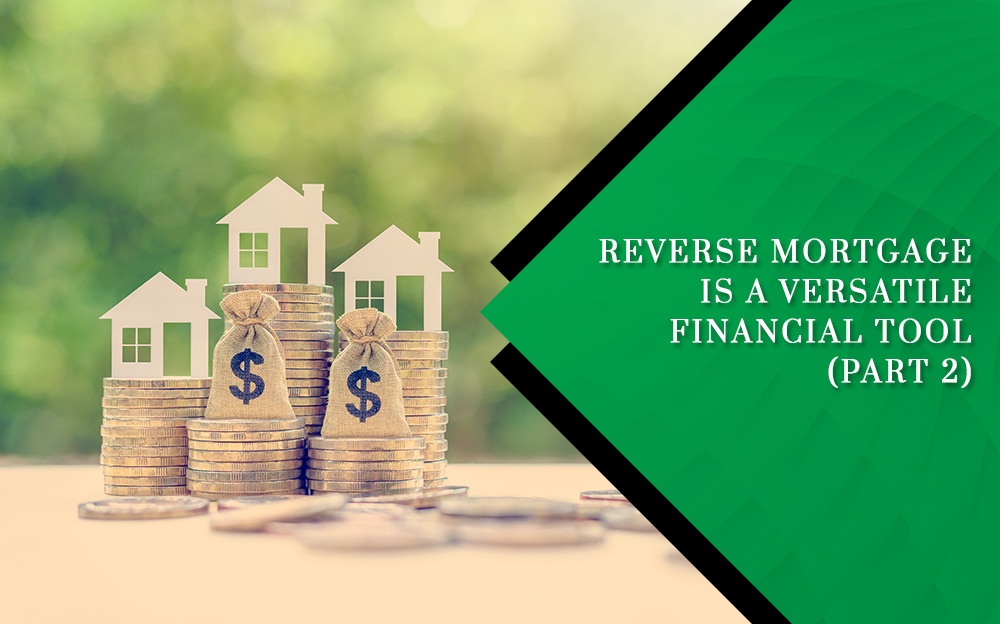Reverse mortgage is a versatile financial tool (Part 2)

Hopefully you’ve read Part 1 of this reverse mortgage series, where we have cleared up some of the myths and misconceptions about this financial tool.
We have one final concern that wasn’t addressed in the previous blog, which was whether or not the surviving spouse or partner may be stuck repaying the loan after the homeowner passes away. Fortunately, surviving spouses can remain in the home without having to make payments, as long as they are also registered on the mortgage. And unless they choose to sell the home.
This also applies if one spouse needs to leave for assisted living or long-term care. If the remaining partner is healthy and wishes to stay in the home, they can do so without making payments. This is not uncommon, and the reverse mortgage can be the ideal way to provide tax-free funds to care for your loved one, without impacting cash flow needed to maintain the home or continue to take part in the activities you’ve always enjoyed.
But against all the benefits, some people still believe that a reverse mortgage is the solution of last resort. Many financial planners, however, recommend this product for its financial flexibility. Not to mention, once again, that it’s tax free money that can add years to your retirement savings.
What about other options?
Some will argue that a HELOC (Home Equity Line of Credit) is a better alternative. This may be the case for some, but let’s look at the facts and do a quick comparison.
HELOCs are a good short-term borrowing option for people who can pay the interest and loan in the near future. Keep in mind, however, that HELOCs are callable loans with monthly payments, and there is a risk of non-renewal or cancellation.
By comparison, a reverse mortgage is a long-term financial solution that won’t be called based on economic changes (such as interest rate increases), depreciation in property value, or change in the homeowner’s income. A reverse mortgage also helps prolong retirement savings.
Still, reverse mortgages are not for everyone, and as with all mortgage options, there are advantages and disadvantages.
Advantages:
- Proof of income is not required in most cases. And when it is, minimal income proof is required.
- Payments are not required.
- Access to money is tax free.
- Qualification is not based on a stress test.
- The amount you may qualify for is based on age, property type, and location.
Disadvantages:
- In all types of reverse mortgages (see Part 3 for the available reverse mortgage products), there is a minimum lump sum draw of funds required.
- A reverse mortgage should not be considered as short-term financing – no less than five years under normal circumstances. This is currently true, however in September 2020, an open short-term reverse mortgage product will be launched. We will provide details, and a list of potential uses in a later post.
- Interest does accrue over the time a reverse mortgage is in place.
Stay tuned for our next blog post (Part 3). But in the meantime, if you would like more details on reverse mortgages, contact Richard Mewhinney at richardm@homeguardfunding.com. He can assess your situation and prepare financial projections based on your individual circumstances and needs.
Richard Mewhinney is a Mortgage Broker with Homeguard Funding Ltd. and is a Certified Reverse Mortgage Specialist.
This post is intended for information purposes only. Each individual circumstance is different, and if you are interested in specific details for your situation, please contact a Reverse Mortgage Specialist
Click here for more info on Chip Reverse Mortgage